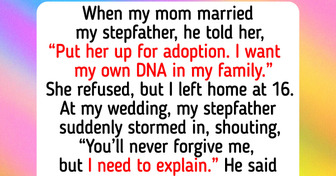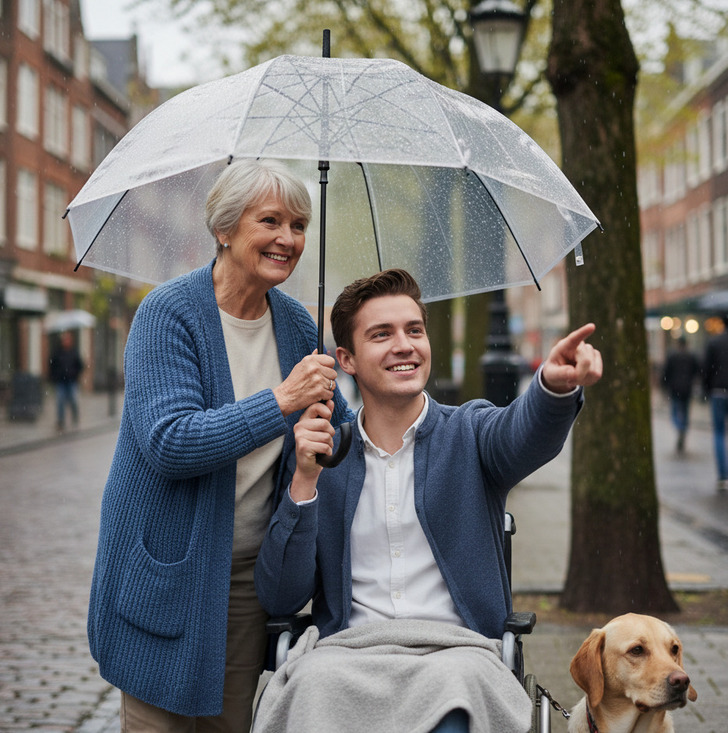Not been brought up well!
I Didn’t Give Up My Seat to an Old Lady—I’m Not Charity
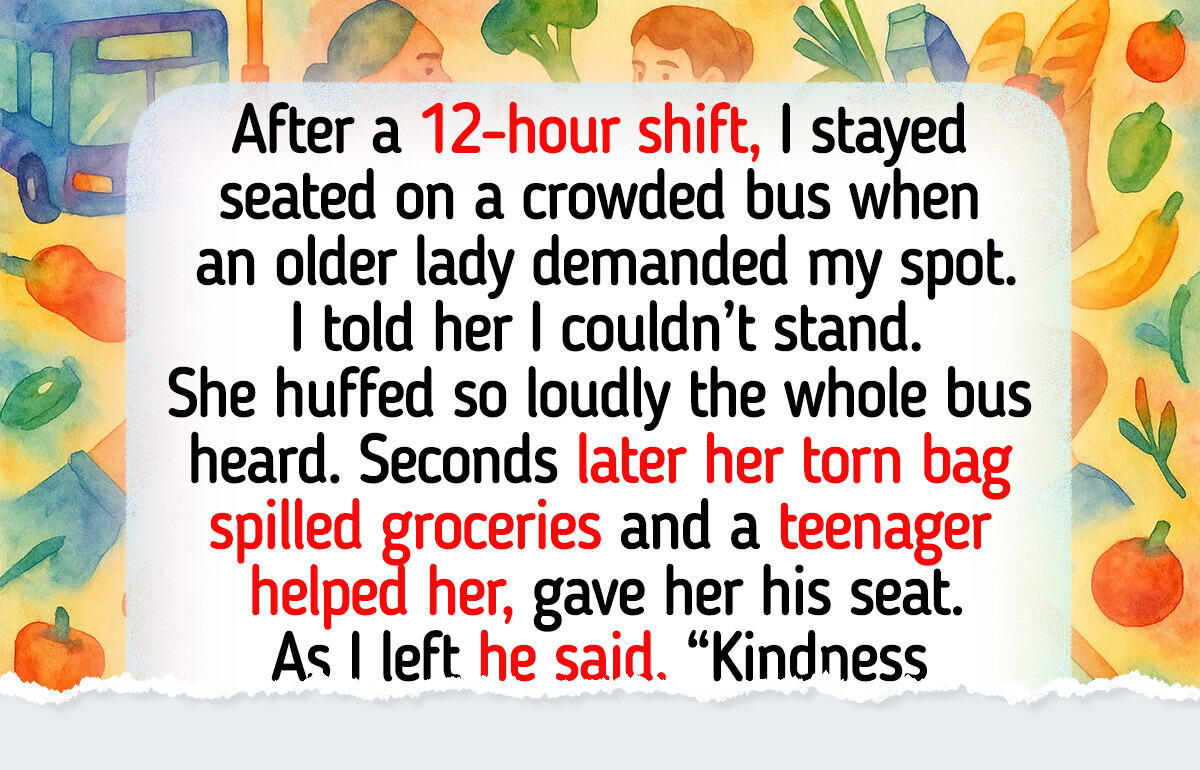
Every now and then, we get a letter that feels like a small flashlight pointed at the good still left in the world. This one came from a reader who learned an unexpected lesson on a packed bus after a long shift — a reminder that kindness isn’t something you force, it’s something you choose.
Lora’s letter:
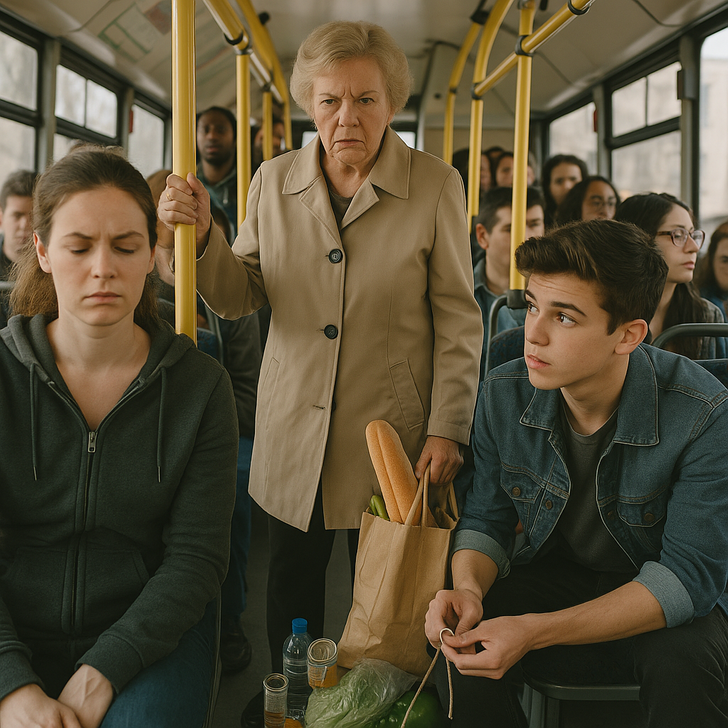
Hi Bright Side!
I was on a packed bus after a 12-hour shift, feet throbbing, brain fried. An older lady got on, looked straight at me, and snapped, “Well? Aren’t you going to offer your seat?”
I said, as politely as I could, “I’m sorry, I actually really need to sit right now.”
She huffed loudly enough for the whole bus to hear. “Young people these days... no manners.”
People stared. I felt like dirt. But I stayed seated. My legs were shaking too much to stand anyway.
A few seconds later, she stumbled. Not because of her age — because her bag was tearing. Groceries everywhere.
Before I could even move, a teenage boy jumped up, helped her gather everything, tied her bag with his shoelace, and offered his seat. She sat down silently.
As I got off the bus, the boy looked at me and said, “You good? You looked like you were going to pass out earlier.”
Turns out he’d been watching me struggle to stay awake the whole ride. The old lady glared at me like I’d failed some moral test.
But the kid? He just shrugged and said, “Kindness isn’t a performance. You don’t owe it to people who demand it.”
I’ve thought about that ever since.
Lora
Psychological: Why Kindness Hits the Brain So Hard.
Kindness isn’t just a moral choice — it’s a biological event. Acts of kindness are more than just nice gestures — they actually benefit the person doing them.
When a person receives or witnesses an act of kindness, the brain releases oxytocin, sometimes called the “bonding hormone,” which increases trust, connection, and stress tolerance. Kindness can trigger a positive feedback loop, creating what they call a “cascade of cooperation” — when one person behaves kindly, observers are more likely to do something kind themselves.
Even small acts matter. A large study reviewed by the American Psychological Association found that prosocial behavior (any action intended to help others) has a “small but significant” impact on overall well-being, including reduced depression, higher life satisfaction, and greater emotional stability — especially during stressful periods.
Doing something kind can activate the brain’s reward systems similarly to receiving a gift, boosting serotonin and dopamine — the chemicals associated with calm, pleasure, and motivation.
In short: kindness literally changes the chemical state of the brain, making people feel safer, calmer, and more connected.
Sociological: Why Kindness Shapes Communities.
Sociologists describe kindness as a “social glue” — something that strengthens bonds and stabilizes communities. It makes groups more cooperative and generous.
A review described kindness as a “universal value deeply intertwined across cultures,” and found that communities with higher rates of everyday kindness show lower levels of loneliness, social tension, and interpersonal hostility.
The Greater Good Science Center at UC Berkeley highlights that kindness spreads through social networks like a contagion — but in a beneficial way. When someone witnesses kindness, they are more likely to help someone within the next 24 hours, creating what researchers call a “prosocial ripple effect.”
Sociologists believe this ripple effect is one reason some communities feel warm and welcoming while others feel cold and isolating. Even one small act — a seat offered, a stranger helping pick up spilled groceries, a kid handing someone a drawing — can reset the tone of an entire space.
In the end, kindness isn’t a rule to follow — it’s a moment we choose, and that choice is what makes it real.
10 Stories of Kindness That Show Angels Walk Among Us Every Second of Every Day
Comments
Karen had her nerve demanding OP's seat. Sometimes a disability, or an illness, or in OP's case exhaustion isn't all that obvious. OP NTA. & The grocery bag busting open ~ talk about instant karma 😆
This happened to my daughter I was about to tell her to hive her seat to an elderly gentleman before I could to speak he turn round and told her she was a disgrace snd spoiled so I told her to sit where she was
I'm sorry but the older lady had a very entitled attitude. She didn't show any respect when she was demanding the seat
The only problem with the younger generation is that the older generation are setting the example for them.
I'm disabled and need to use a walking aid. I'm in my 50s. I've honestly lost count of the number of older women come running out of the gym to the bus then try to demand that I move! OK Susan! I wish I could run a fast and as far as you do so sit in the empty seat behind me! In England we have priority seats for disabled/pregnant/elderly passengers, so I'm literally sitting in the seat that I'm supposed to sit!
Related Reads
My Boss Publicly Shamed My Small Charity Donation—So I Revealed Exactly How Much He Gave

15 People Who Stay Kind Even When Their World Is Falling Apart
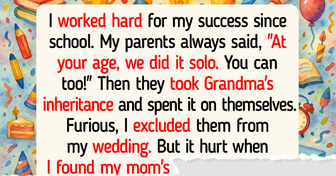
15 Stories That Prove the Kindest Moments Are Often the Quietest
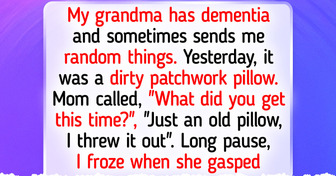
I Refused to Let My Neighbor’s “Ugly” Renovation Block My View—It Turned Into a Power Game
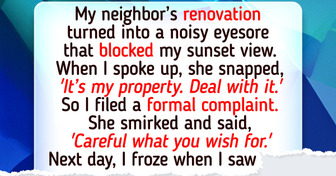
12 Moments When Someone’s Kindness Became Their Most Powerful Weapon
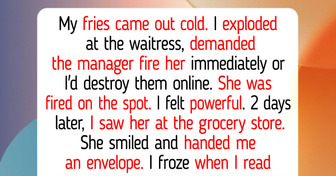
I Got Fired for Refusing to Let My Boss Humiliate Me in Front of Everyone
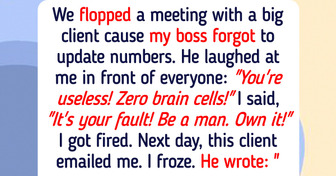
15 Times Kindness Showed Up Exactly When It Was Needed
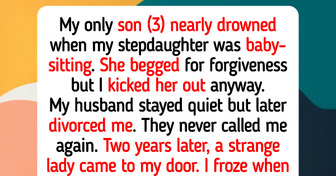
12 Life Moments Where Quiet Kindness Played the Main Role

14 Quite Acts of Kindness That Changed Someone’s Life Forever
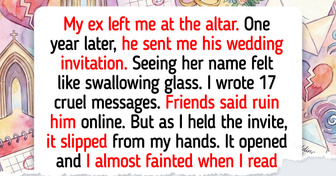
12 Moments Where Empathy Showed the Power of a Kind Heart
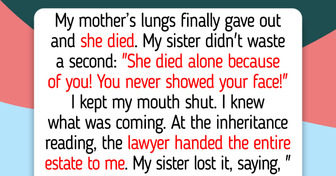
15 Moments That Prove Kindness Is the Thread Holding Life Together
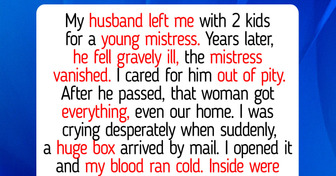
19 Heartbreaking Blended Family Stories the World Needs Right Now
